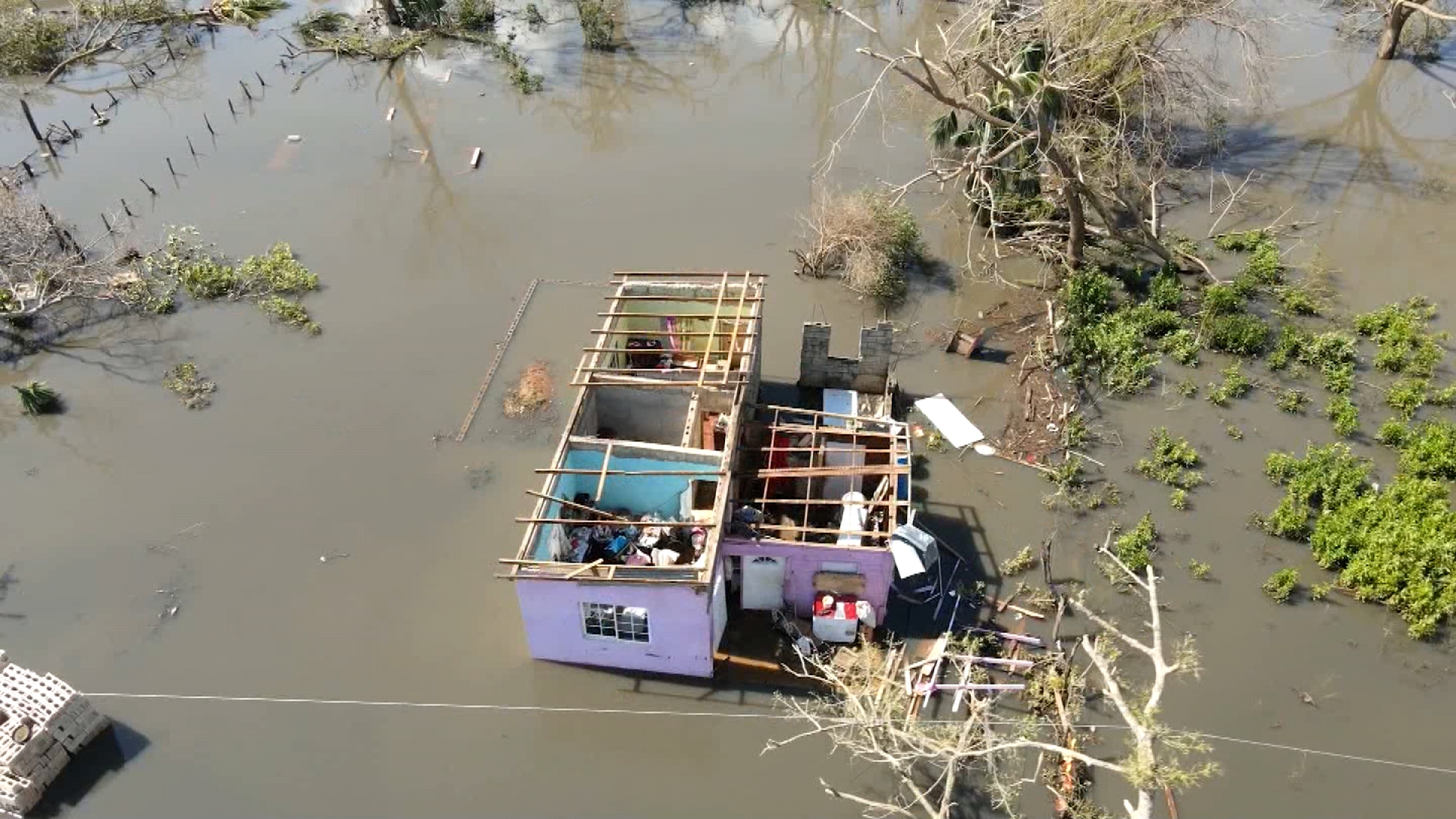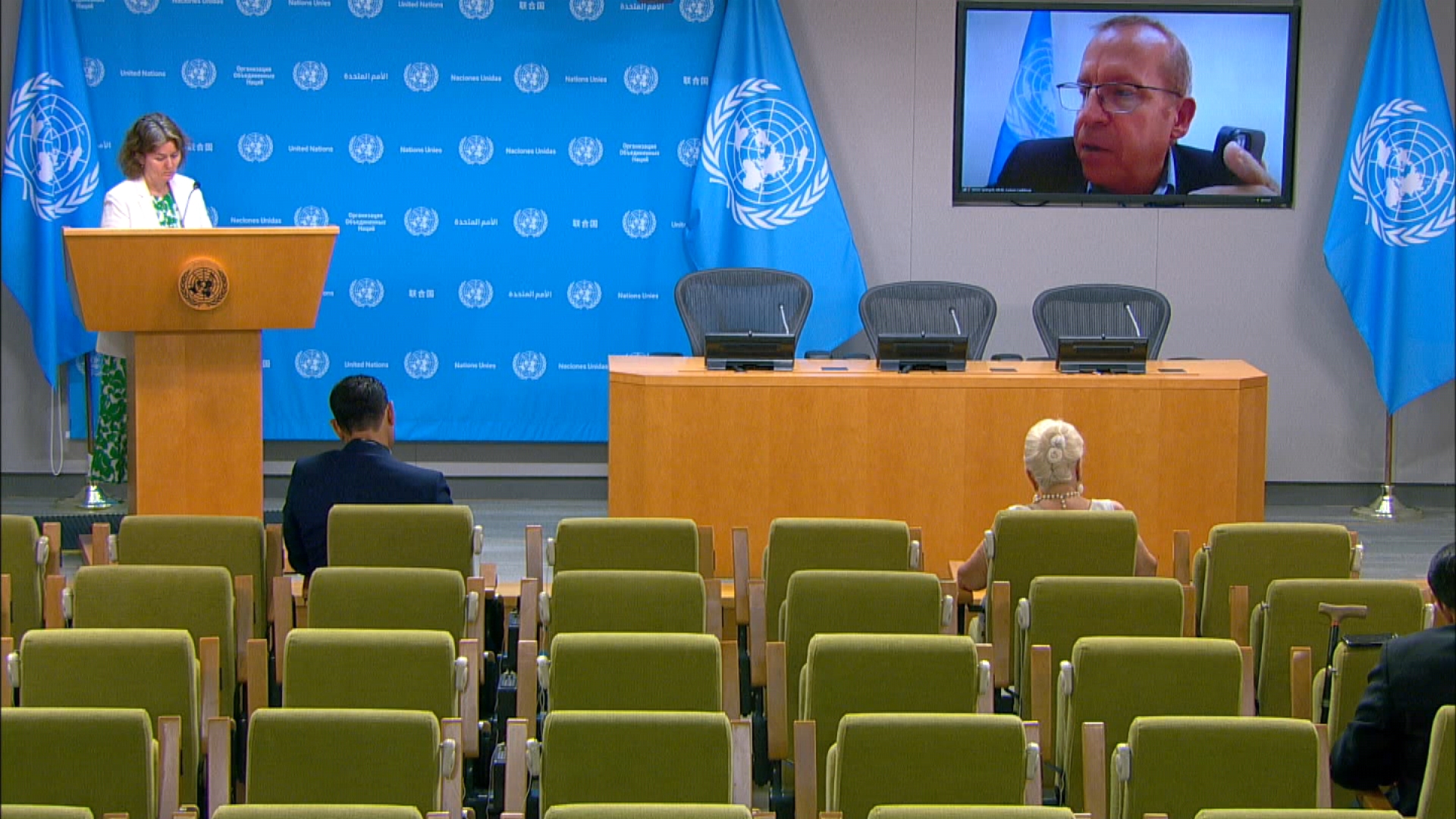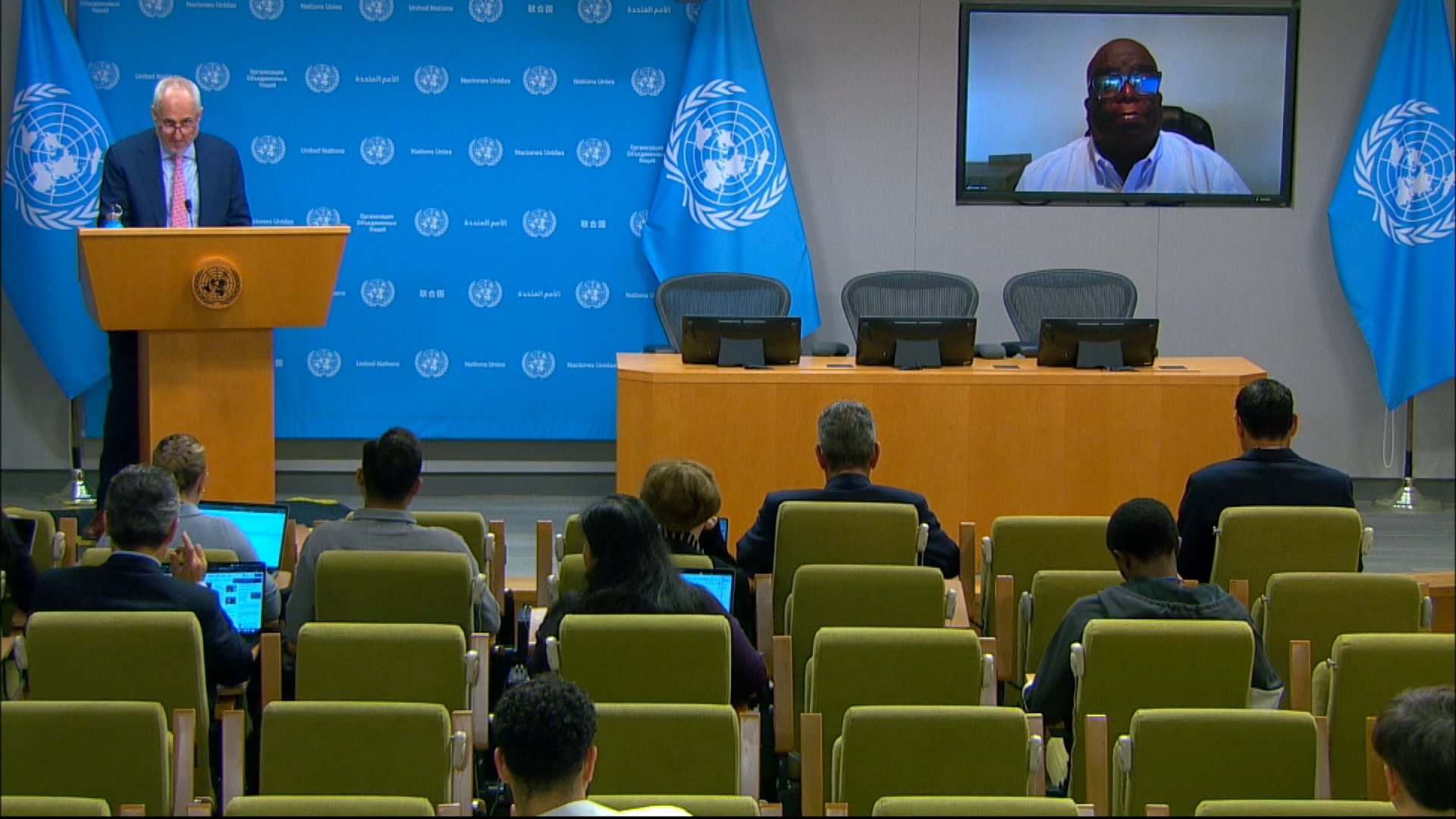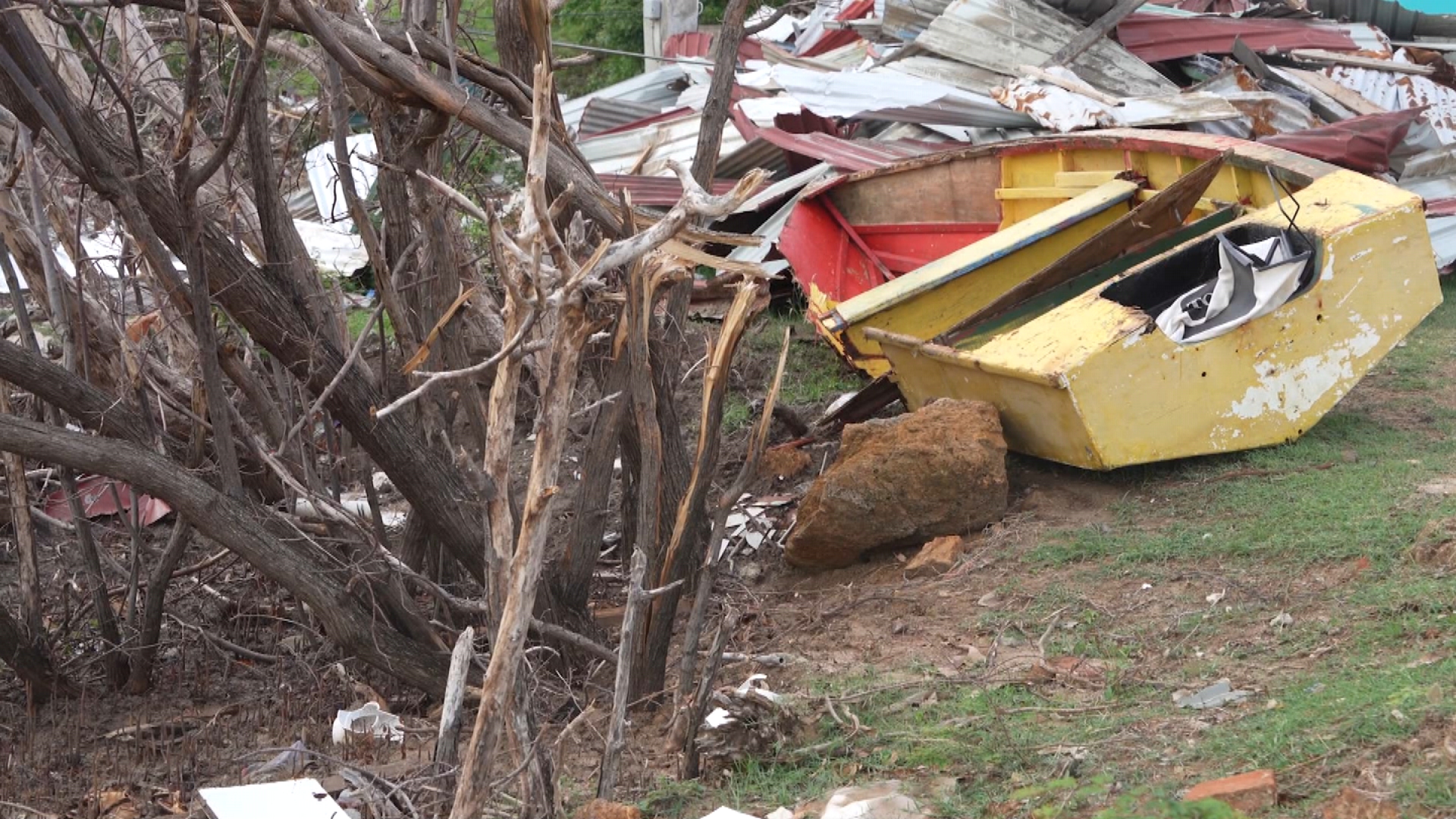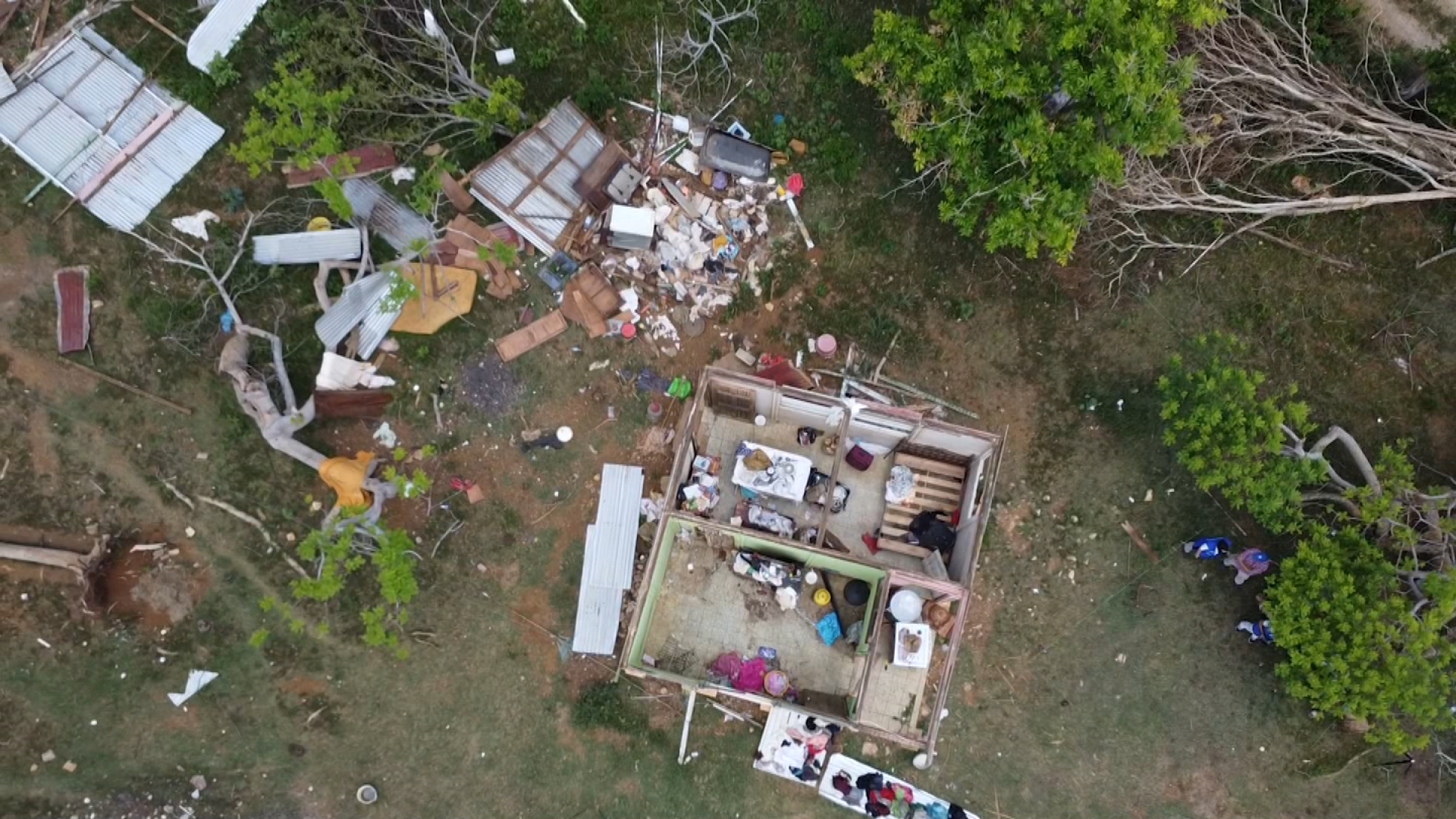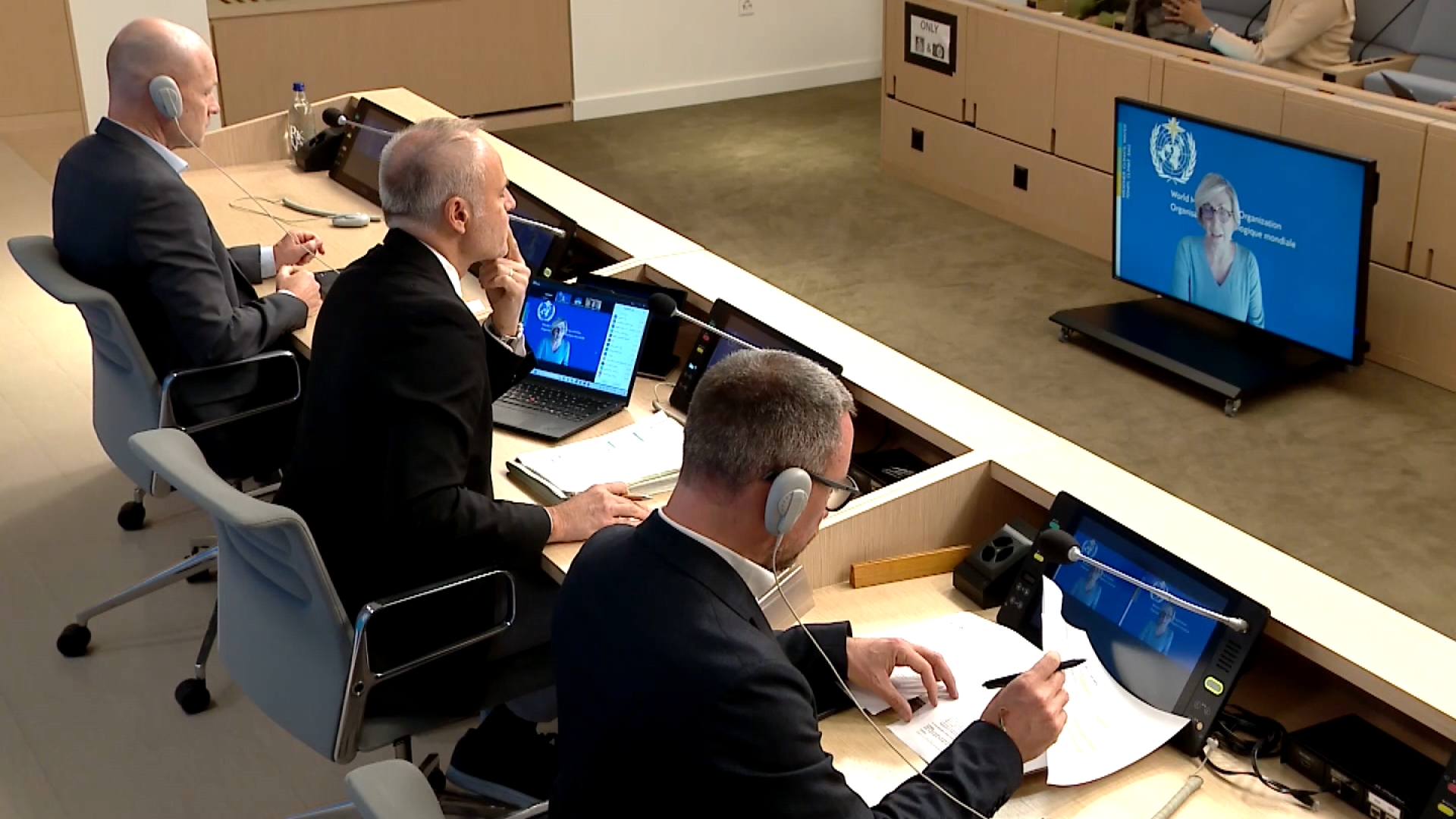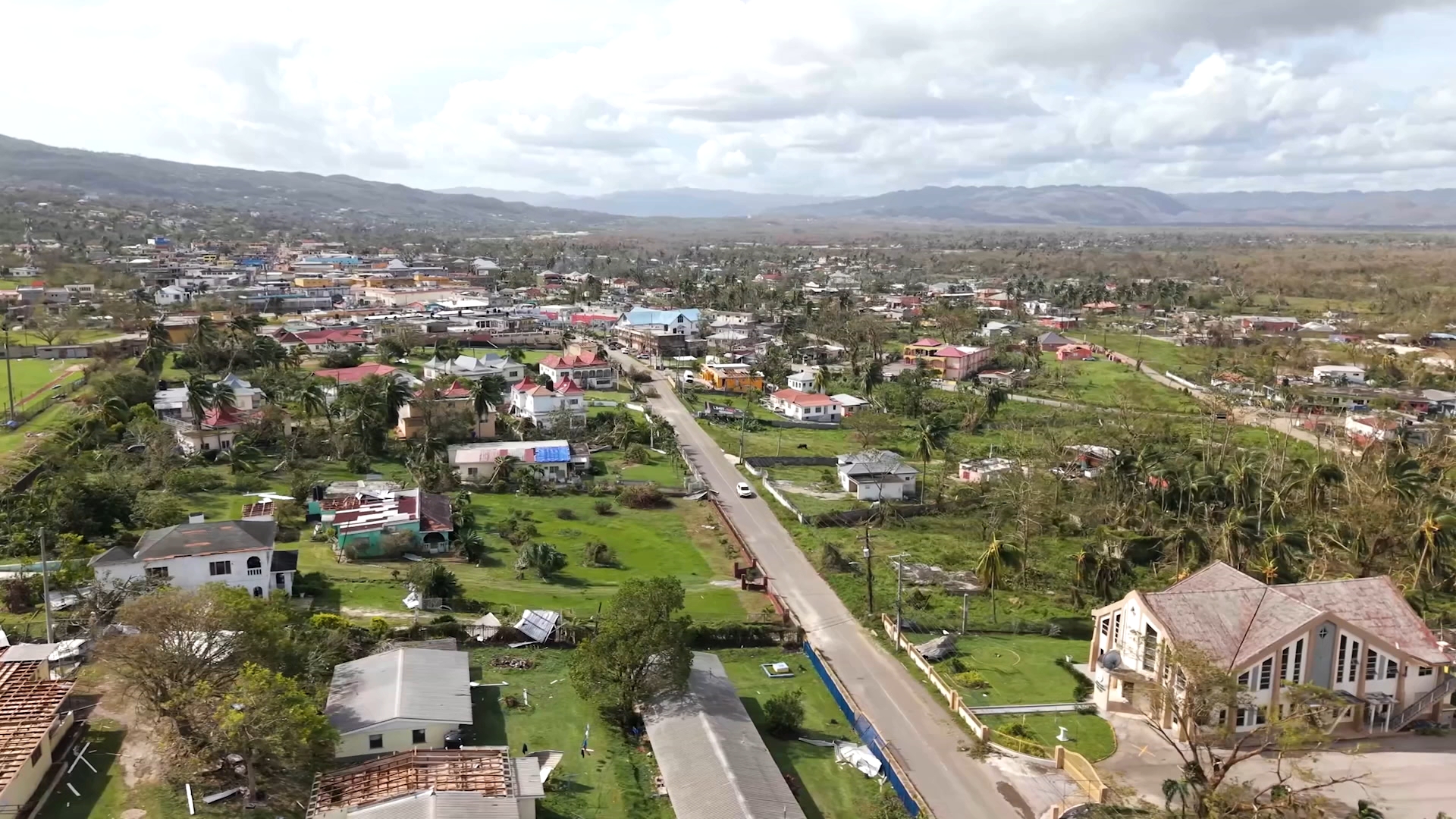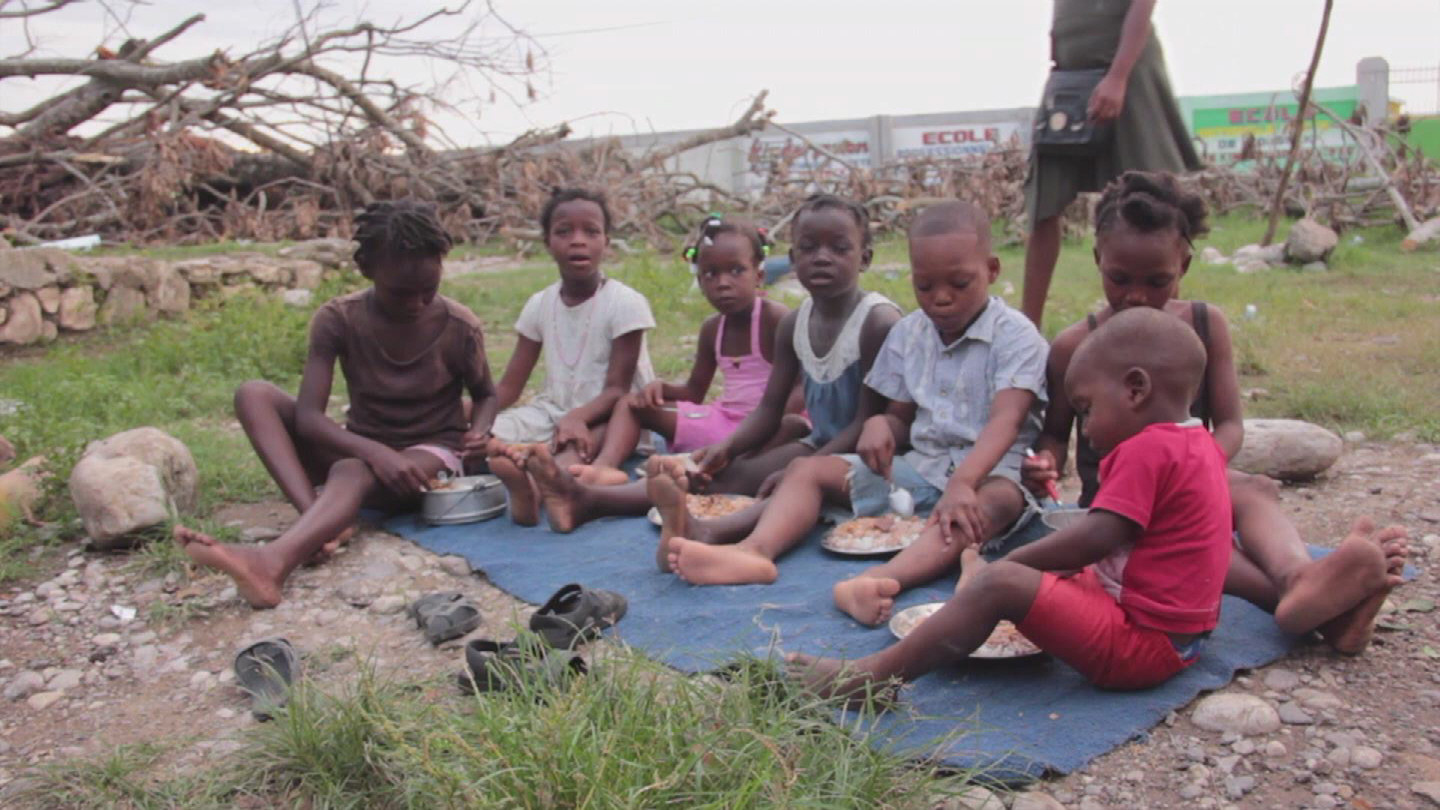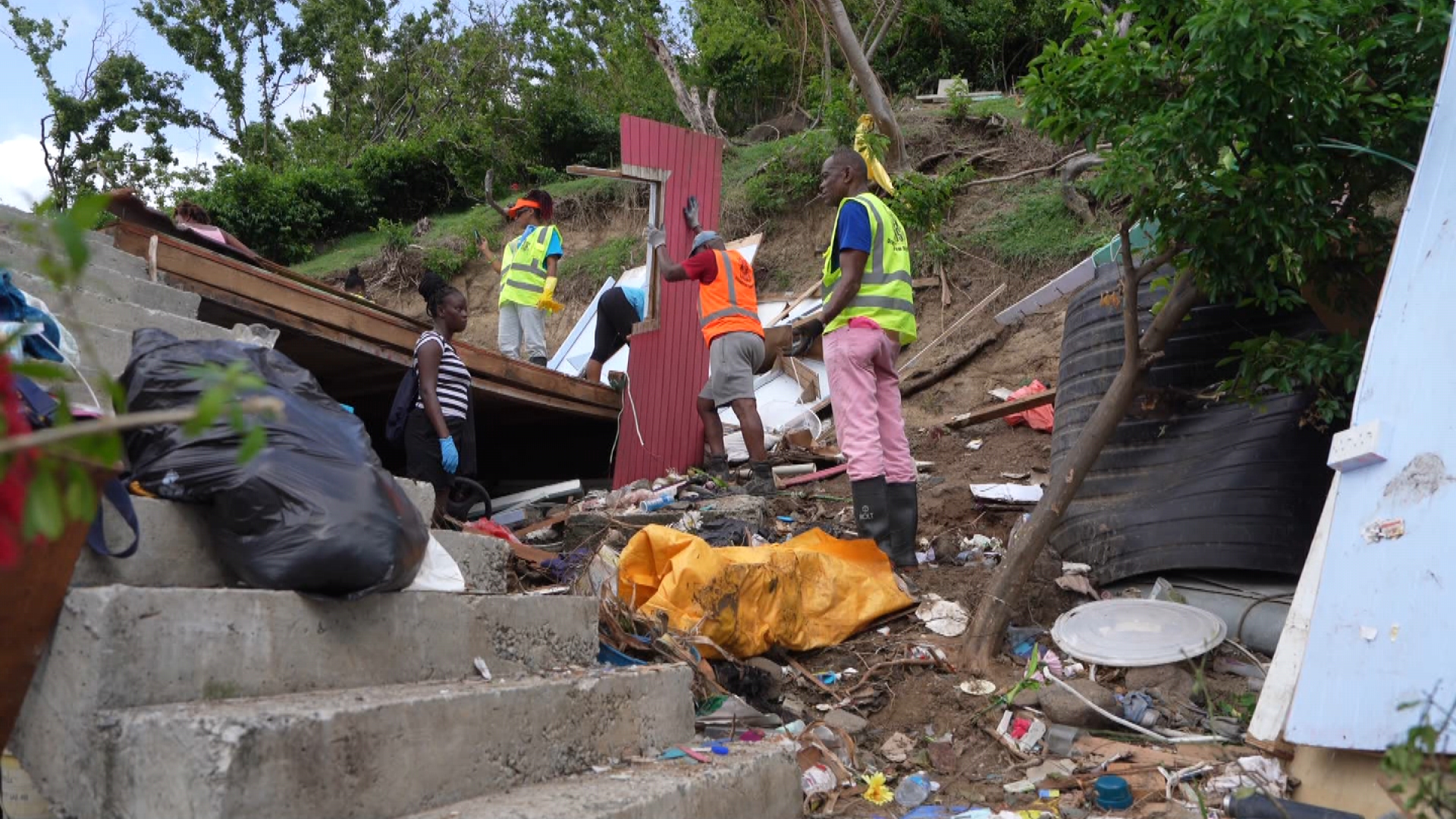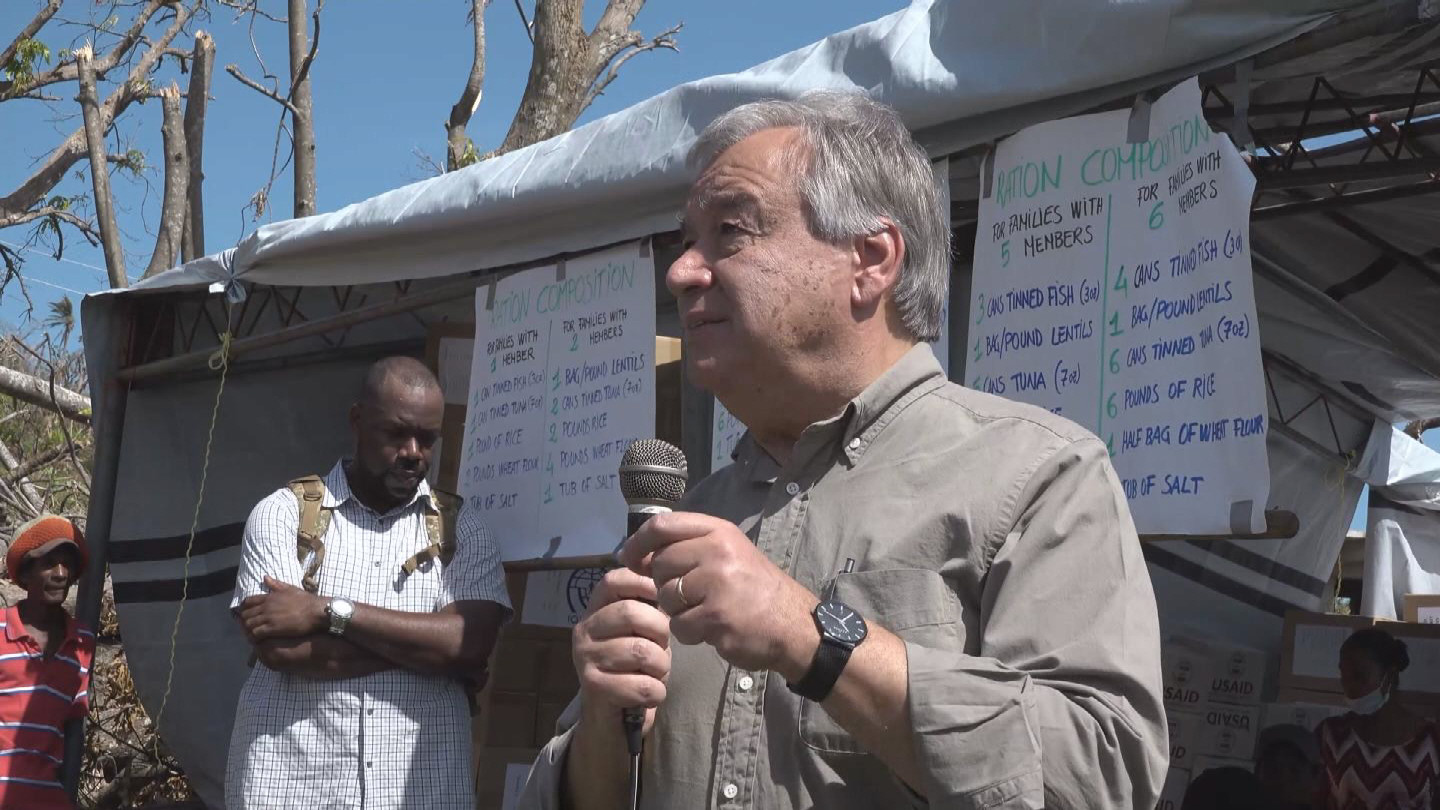WFP / JAMAICA HURRICANE MELISSA
STORY: WFP / JAMAICA HURRICANE MELISSA
TRT: 1:56
SOURCE : WFP
RESTRICTIONS: PLEASE CREDIT WFP ON SCREEN
LANGAUGE: ENGLISH / NATS
DATELINE: 31 OCTOBER TO 2 NOVEMBER 2025, JAMAICA AND BARBADOS
31 OCTOBER 2025, ST ELIZABETH, JAMAICA
1. Various drone shots, destruction (NO SOUND)
The parish of St. Elizabeth along the southwest coast of Jamaica – long considered the country’s breadbasket – has been particularly hard hit with homes, farms, and livelihoods destroyed. Many communities remain cut off and without power.
1 NOVEMBER 2025, KINGSTON INTERNATIONAL AIRPORT, JAMAICA
2. Various shots, arrival of WFP Food Boxes at Kingston international Airport
Airlift of emergency food assistance from WFP’s regional logistics base in Barbados. The cargo plane landed at Kingston international airport with 2,000 boxes of food aid, including canned fish and meat, rice, pulses and vegetable oil, to be distributed in shelters and in the most-affected communities in the St. Elizabeth area.
02 NOVEMBER 2025, SANTA CRUZ, JAMAICA
3. Various shots, WFP-contracted trucks arriving in St. Elizabeth Parish with food boxes at a local high school where locals who have lost their homes shelter at night.
4. SOUNDBITE (English) Alexis Masciarelli, WFP Spokesperson:
“Our priority right now is to reach isolated communities like this one. People who have lost their homes their livelihoods people are still in shock. We know they are resilient but assistance like these boxes of food like we are bringing to this school are urgent for many.”
5. Various shots, WFP Food Distribution
WFP has started delivering food assistance in the worst affected areas. Some 1,500 people have already received kits containing rice, lentils, canned fish and meat, and vegetable oil. While food distributions continue, more airlifts with humanitarian supplies are planned for this week and vessels loaded with further relief items are on the way.
6. SOUNDBITE (English) Alexis Masciarelli, WFP Spokesperson:
“We know that all across the Caribbean there’s more than 5 million people who have been affected by Hurricane Melissa, and our commitment as the World Food Programme is to meet their immediate food needs but to also continue to support national governments in what is likely to be a marathon recovery.”
31 OCTOBER 2025, BRIDGETOWN PORT, BARBADOS
7. Various shots, Dutch vessel being loaded with emergency relief items being sent from WFP’s Regional Logistics Hub in Barbados.
As the full extent of Hurricane Melissa’s destruction emerges, the United Nations World Food Programme (WFP) is intensifying relief efforts in the hardest-hit areas to support local authorities. Almost 6 million people across Jamaica, Cuba, and Haiti have been impacted by the storm.
WFP has begun emergency food distributions for the worst affected families and additional relief supplies are arriving in the coming days. WFP also supported millions of people through cash transfers and early warnings ahead of the storm, which helped protect lives and livelihoods. Below is an overview of WFP operations.
Jamaica:
• The parish of St. Elizabeth – long regarded as the country’s breadbasket – has been particularly hard hit with homes, farms, and livelihoods destroyed. Many communities remain cut off and without power.
• WFP has started delivering food assistance in the worst affected areas. Some 1,500 people have already received kits containing rice, lentils, canned fish and meat, and vegetable oil.
• An initial 2,000 food kits were airlifted from Barbados, and more are planned for this week. Vessels loaded with further relief items are also en route.
• To support the broader humanitarian community, WFP has deployed warehouses and logistic equipment - forklifts, containers, and pallets – at strategic coastal and inland locations, including Black River. This will enable rapid distribution and protect supplies in flooded or landslide-affected areas.
• WFP plans to assist up to 200,000 people in Jamaica through a mix of in-kind food and cash transfers to meet urgent food needs, as requested by national authorities.
Cuba:
• Hurricane Melissa left behind widespread flooding, power outages and heavy damage, with crops lost and many buildings partially or fully destroyed.
• Ahead of the storm, WFP and the Cuban Government prepositioned enough supplies to support 275,000 people for up to 60 days. Following the hurricane, food distributions have already reached 181,000 people who were evacuated to shelters.
• WFP plans to assist 900,000 people who will require emergency food assistance for three months, with half of those need assistance for an additional three months.
Haiti:
• Homes and infrastructure have been washed away along the southern coast which was the most impacted by the hurricane.
• Anticipatory payments worth US$900,000 were provided to approximately 50,000 people, to protect their livelihoods ahead of the hurricane. Some 2.5 million people also received text messages with practical guidance on how to prepare for and stay safe during the storm.
• As families leave temporary shelters to return home, they are receiving a two-week food ration, followed by one month of cash assistance to help them purchase essentials where markets remain functional and to support stronger recovery.
• WFP has reached 12,700 people with emergency food distributions across grand southern regions and is scaling up to reach 190,000 people as part of the response.
Regional support and partnerships
• The WFP Caribbean Regional Logistics Hub in Barbados and the WFP-managed United Nations Humanitarian Response Depot (UNHRD) in Panama are storing and transporting emergency supplies for populations affected by Hurricane Melissa.
• French and Dutch vessels in the Caribbean, with support from the European Union, are on the way to Jamaica with aid. The United States is also providing air transportation within Jamaica to reach the most isolated communities. The European Civil Protection and Humanitarian Aid Operations (ECHO) will support an airbridge operation to dispatch life-saving supplies - covering shelter, health, WASH, and logistics - from WFP’s corporate stocks and humanitarian partners.
• WFP has launched an urgent appeal for US$74 million to deliver life-saving assistance to up to 1.1 million people across the impacted countries, and coordinate emergency logistics and telecommunications across impacted countries.
• Government donors have started pledging contributions against WFP’s urgent funding appeal, private sector partners are supporting with connectivity and air transport, and individuals can donate to contribute to relief efforts.
• WFP worked with Caribbean governments ahead of the hurricane to provide early warnings, preposition stocks, and help people secure their livelihoods – all of which helped protect lives and will contribute to early recovery. The UN Central Emergency Response Fund (CERF), ECHO, the United States, Canada and Ireland contributed to preparedness efforts, critical to mitigate the impact of climate-driven disasters.

